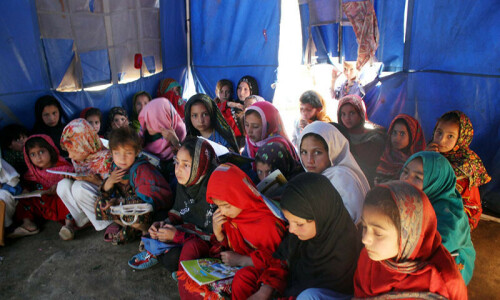ISLAMABAD: “Global inequality is on the rise due to a variety of factors,” said Professor Tariq Banuri speaking at the Sustainable Development Policy Institute (SDPI) on Tuesday.
Professor Banuri is considered to be an expert in sustainable development and recently served as director at the United Nations Division for Sustainable Development.
Dr Banuri discussed the topic ‘Post Millennium Development Goals (MDGs) Agenda- Sustainable Development Goals’.
He said global challenges such as lack of energy resources, natural disasters and conflict are termed as ‘converging challenges’ because they are interlinked.
He said the most positive development regarding MDGs and their implementation is the involvement of all stake holders.
“The key gains with regards to the MDGs are in renewable energy, energy efficiency and a greater emphasis on disclosure for big businesses which has enhanced transparency even for CSR spending,” Professor Banuri said.
He said in a changing world, goals are ever evolving.
“Anybody coming from the 1980s would never understand the dynamics of Arab spring, recent oil war, climate change, importance of alternative energy and most importantly the meaning of sustainable development and the significant role of civil society,” he said, adding that these issues started to emerge after 2000s, and are now a reality.
Professor Banuri said energy had been a focus for governments the world over for over three decades.
“We were discussing dams, nuclear plants, coal power and oil in the 1970s and 1980s. Today, we are discussing the same issues with the addition of alternative energy,” he said.
“However, he added that there is more to learn this time,” he added.
Professor Banuri said today sustainable development had gained importance, and we are not just busy rectifying visible problems as we had done in the past.
He said the world was moving towards sustainable development by following four steps.
“These steps are – plan of action, diagnosis, aspiration and warning,” he added.
He warned that the overall conditions were worrying as the population of the world will be around 12 billion by 2059, the frequency of natural disasters are increasing and signs of climate change are now visible.
Published in Dawn December 24th , 2014










































Dear visitor, the comments section is undergoing an overhaul and will return soon.